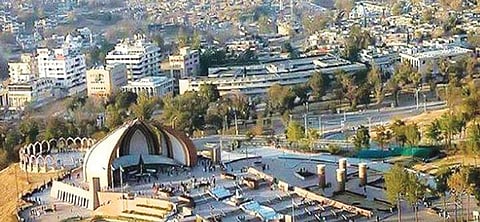Travelling with the whirlwind
While reading a work of non-fiction, issues that matter are not just the author’s thought process, perspective and ability to look at facts dispassionately but also their body of work as one entity. The first introduction of Mehr Tarar to Indian readers is as a woman who was mocked and demonised in the media for her supposed involvement with a leading politician and the war of words that ensued between interested parties.
It was not very tasteful. Subsequently Tarar was scorned on both sides of the border. She was castigated loudly and dubiously by self-proclaimed upholders of tehzeeb and power in her country, Pakistan; to her credit she stood her ground. Her narrative subtly but succinctly reflects the nuances of the events that came to pass, but that is not all.
The writer reveals in-depth understanding of the lives of both eminent and everyday people, especially women. It examines the different aspects of Indo-Pak ties, and the problems and possible solutions without offering judgment.
The book holds detailed mentions of her homeland turning into the nurturing ground of newly-fundamentalist religion and how it affects lives across borders. She agonises over the trauma of misogyny in her country where female independence is ostracised and women are categorised according to chauvinistic views. But Tarar is Pakistani. She is in love with her country. She also has opinions on politics in our country. She is an assertive woman and she is political.
These do not bode well for a women in the male dominated society in Pakistan, which is always ready with unwelcome and unsought retribution. However, Tarar takes apart the wall of prejudice brick by brick with her lucid understanding of life, gender, and politics in her country. She is an unabashed patriot. But above all, she addresses humanity within her nation’s context, moving the reader with the complexity of belief.
Do We Not Bleed is a portmanteau of stories within a story, that houses a holistic national sentiment. It is through this perspective that I read the book; a sight I had gained, too, by a present on-the-ground understanding of Pakistan and expansive professional work on the arts and socio-cultural issues on a national and global scale where the chaos of the country is as visible as the beauty of its past.
Tarar’s book is a journey through the vast spectrum of layered history and the individual choices of the dramatis personae of her land’s tale. She addresses the contradiction of Jinnah’s love to create a country based on Islam— an ideal nation of peace and prosperity—and the hard facts of religion interfering with governance and the corruption in its politics and polity that has created many a catastrophe for the land of her birth.
Her language is delicately detailed yet the words hit home hard. Tarar throws caution to the wind and redeems herself in unwilling eyes with the grace and aplomb of a master scribe who knows what she is talking of and does it with a compassionate understanding of life and people.
The account of each individual’s life in the book is factual and lucidly descriptive. From the vast treasury of bilateral angst, rebellion with a world view, Tarar’s book is a verbal whirlwind through the mindscape of the people, predilections and prospects of the sub-continent.

